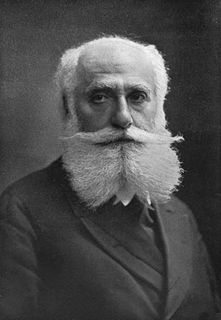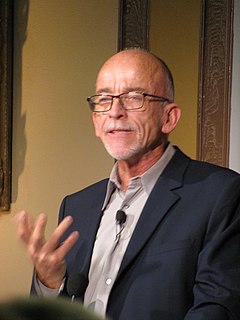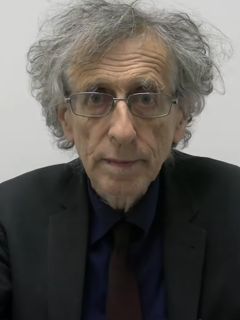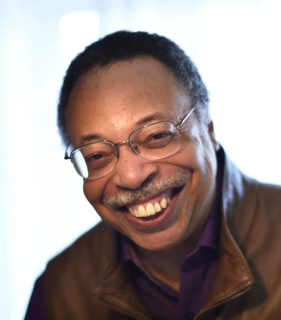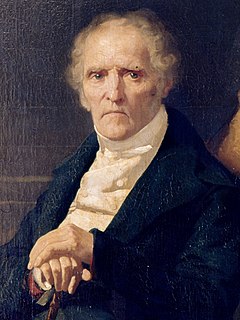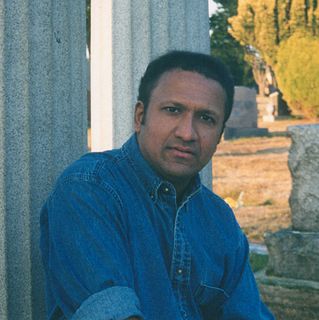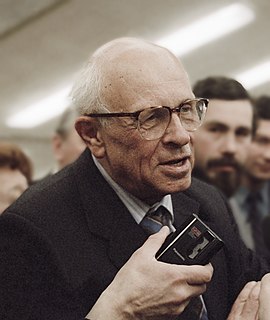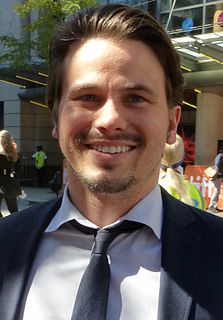Top 1050 Theories Quotes & Sayings - Page 15
Explore popular Theories quotes.
Last updated on November 19, 2024.
It turned out I was pretty good in science. But again, because of the small budget, in science class we couldn't afford to do experiments in order to prove theories. We just believed everything. Actually, I think that class was called Religion. Religion class was always an easy class. All you had to do was suspend the logic and reasoning you were being taught in all the other classes.
The old man has been long at the fair. He is acquainted with the jugglers at the booths. His curiosity has been satisfied. He no longer cares for the exceptional, the monstrous, the marvelous and deformed. He looks through and beyond the gilding, the glitter and gloss, not only of things, but of conduct, of manners, theories, religions and philosophies. He sees clearer. The light no longer shines in his eyes.
Is evolution a theory, a system, or a hypothesis? It is much more it is a general postulate to which all theories, all hypotheses, all systems must henceforward bow and which they must satisfy in order to be thinkable and true. Evolution is a light which illuminates all facts, a trajectory which all lines of thought must follow this is what evolution is.
A great part of its theories derives an additional charm from the peculiarity that important propositions, with the impress of simplicity on them, are often easily discovered by induction, and yet are of so profound a character that we cannot find the demonstrations till after many vain attempts; and even then, when we do succeed, it is often by some tedious and artificial process, while the simple methods may long remain concealed.
I can have little patience with those who oppose ... the theory of evolution or what are called "mechanistic" explanations of the phenomena of life because of certain moral consequences which at first seem to follow from these theories, and still less with those who regard it as irrelevant or impious to ask certain questions at all. By refusing to face the facts , the conservative only weakens his own position.
The charge is often made against the intelligentsia and other members of the anointed that their theories and the policies based on them lack common sense. But the very commonness of common sense makes it unlikely to have any appeal to the anointed. How can they be wiser and nobler than everyone else while agreeing with everyone else?
So Ayurveda is a bunch of techniques and theories and practices that have been accumulated over many centuries in a way that we think about Ayurveda. But the Ayurvidya is the Shakti that has inspired the development of Ayurveda. It's inspiring the spread of Ayurveda into many other countries. And has to posses an individual before that individual can actually act as a vehicle for healing energy to move into the world.
We find collected in this book [The Bible] the superstitious beliefs of the ancient inhabitants of Palestine, with indistinct echoes of Indian and Persian fables, mistaken imitation of Egyptian theories and customs, historical chronicles as dry as they are unreliable and miscellaneous poems, amatory, human and Jewish-national, which is rarely distinguished by beauties of the highest order but frequently by superfluity of expression, coarseness, bad taste, and genuine Oriental sensuality.
In mysticism, knowledge cannot be separated from a certain way of life which becomes its living manifestation. To acquire mystical knowledge means to undergo a transformation; one could even say that the knowledge is the transformation. Scientific knowledge, on the other hand, can often stay abstract and theoretical. Thus most of today’s physicists do not seem to realize the philosophical, cultural and spiritual implications of their theories.
Questions, inside the larger mystery of sorrow, which contains us and our daily transit, and is large enough indeed to contain the whole shifting tidal theater where I make small constructions, my metaphors, my defenses. Against which I play out theories, doubts, certainties bright as high tide in sunlight, which shift just as that brightness does, in fog or rain.
I gained a first class degree in Physics at Imperial College London in 1968 and did research in solid state physics, but did not pursue meteorology matters until gaining an M.Sc. in astrophysics from Queen Mary College London in 1981, after which I investigated and attempted to construct theories of solar activity.
The early 20th Century was probably the high tide of global white supremacy - I'm going to call it that because that's how people thought of it - and to be specific, Anglo-Saxon supremacy: The idea that white Anglo-Saxon Protestants were at the top of the world, representing the highest achievement possible for all of humanity, with Darwin's theories being used to prop up this belief.
This is the mythosphere. It's made up of all the stories, theories and beliefs, legends, myths and hopes, that are generated here on Earth. As you can see, it's constantly growing and moving as people invent new tales to tell or find new things to believe. The older strands move out to become these spirals, where things tend to become quite crude and dangerous. They've hardened off, you see.
Welfare now erodes work and family and thus keeps poor people poor. Accompanying welfare is an ideology - sustaining a whole system of federal and state bureaucracies - that also operates to destroy their faith. The ideology takes the form of false theories of discrimination and spurious claims of racism and sexism as the dominant forces in the lives of the poor.
A taxonomy of abilities, like a taxonomy anywhere else in science, is apt to strike a certain type of impatient student as a gratuitous orgy of pedantry. Doubtless, compulsions to intellectual tidiness express themselves prematurely at times, and excessively at others, but a good descriptive taxonomy, as Darwin found in developing his theory, and as Newton found in the work of Kepler, is the mother of laws and theories.
It can be a good thing if deeper theology, or philosophy, only makes one more uncertain. It may lead to a healthy doubt; he may throw his hands up saying, 'God, I just don't know anymore. If you're out there, I'm giving it all to you.' From there, after the surrender, he is allowing God himself, rather than theories, books, and documents, to take over and lead him into all truth.
This you may say of man - when theories change and crash, when schools, philosophies, when narrow dark alleys of thought, national, religious, economic, grow and disintegrate, man reaches, stumbles forward, painfully, mistakenly sometimes. Having stepped forward, he may slip back, but only half a step, never the full step back.
Taxonomy (the science of classification) is often undervalued as a glorified form of filing-with each species in its folder, like a stamp in its prescribed place in an album; but taxonomy is a fundamental and dynamic science, dedicated to exploring the causes of relationships and similarities among organisms. Classifications are theories about the basis of natural order, not dull catalogues compiled only to avoid chaos.
Consequentialist theories pretend that we can set some great big ends (the general happiness, human flourishing), provide ourselves with definite enough conceptions of them to make them the objects of instrumental reasoning, and then obtain enough reliable information about what actions will best promote them that we could regulate our conduct by these considerations alone.
There is too much ideological conformity in gender studies. The true-believers fashion the theories, write the textbooks and teach the students. When journalists, policymakers, and legislators address topics such as the wage gap, gender and education, or women's health, they turn to these experts for enlightenment. For the most part, they peddle misinformation, victim politics, and sophistry. They claim that their teachings represent the academic consensus, but that is only because they have excluded all dissenters.
The Civilized… murder their children by producing too many of them without being able to provide for their well-being. Morality or theories of false virtue stimulate them to manufacture cannon fodder, anthills of conscripts who are forced to sell themselves out of poverty. This improvident paternity is a false virtue, the selfishness of pleasure.
It is a matter for considerable regret that Fermat, who cultivated the theory of numbers with so much success, did not leave us with the proofs of the theorems he discovered. In truth, Messrs Euler and Lagrange, who have not disdained this kind of research, have proved most of these theorems, and have even substituted extensive theories for the isolated propositions of Fermat. But there are several proofs which have resisted their efforts.
Here is an entirely banal idea that I think has the potential to change the world: Take evidence seriously. Taking evidence seriously does not mean privileging numbers over all other forms of knowledge - theories, narratives, images. Nor does it mean the kind of radical skepticism that questions everything to the point where no action is possible.
The atheist, agnostic, or secularist ... should guard against the encroachment of religion in areas where it has no place, and in particular the control of education by religious authority. The attempts to ban the teaching of evolution or other scientific theories -- a feeble echo of medieval church tyranny and hostility to learning, but an echo nonetheless are serious threats to freedom of inquiry and should be vigorously combated.
Moral theory develops from the divine command theory of medieval Christian philosophy, mixed up with a bit of ancient pagan virtue theory, to the purely secular moral sentiment and interpersonal reaction theories of Smith and Hume, to Kant's attempt to restore command theory but with something supersensible in the individual rather than God as the source of authority.
I think that in order to achieve progress in the study of language and human cognitive faculties in general it is necessary first to establish 'psychic distance' from the 'mental facts' to which Köhler referred, and then to explore the possibilities for developing explanatory theories... We must recognize that even the most familiar phenomena require explanation and that we have no privileged access to the underlying mechanisms, no more so than in physiology or physics.
Think of all the nonsense you had to learn in psychology courses. None of which was testable. None of which was measurable. We had behaviorism, Freudian psychology, all of these theories that you learn in psychology. Totally untestable. Now, we can test it, because physics allows us to calculate energy flows in the brain.
True religion is not talk, or doctrines, or theories, nor is it sectarianism. It is the relation between soul and God. Religion does not consist in erecting temples, or building churches, or attending public worship. It is not to be found in books, or in words, or in lectures, or in organizations. Religion consists in realization. We must realize God, feel God, see God, talk to God. That is religion.
The fact that these scientific theories have a fine track record of successful prediction and explanation speaks for itself. (Which is not to say that I don't directly discuss the work of those philosophers who would disagree.) But even if we grant this, many will argue that scientific knowledge in humans, and, indeed, reflective knowledge in general, is quite different in kind from the knowledge we see in other animals.
Textbook science is beautiful! Textbook science is comprehensible, unlike mere fascinating words that can never be truly beautiful. Elementary science textbooks describe simple theories, and simplicity is the core of scientific beauty. Fascinating words have no power, nor yet any meaning, without the math.
I could have just said I'm good at my job, but I didn't. Didn't want the police thinking I was holding out information when I wasn't. "I've got one advantage over a normal homicide detective, I expect it to be a monster. No one ever calls me in if it's just a stabbing, or a hit-and-run. I don't spend a lot of time trying to come up with nice, normal explanations. It means I get to ignore a lot of theories.
My scientist friends have come up with things like 'principles of uncertainty' and dark holes. They're willing to live inside imagined hypotheses and theories. But many religious folks insist on answers that are always true. We love closure, resolution and clarity, while thinking that we are people of 'faith'! How strange that the very word 'faith' has come to mean its exact opposite.
I look at the most promising putative moral theories. I construct crucial thought experiments in areas where they give conflicting advice. I confront their conflicting advice with my own moral sensitivity, my moral intuition. I take the theory that can best explain the content of my intuitions as gaining inductive support through an inference to the best explanation.
Philosophers of science constantly discuss theories and representation of reality, but say almost nothing about experiment, technology, or the use of knowledge to alter the world. This is odd, because 'experimental method' used to be just another name for scientific method.... I hope [to] initiate a Back-to-Bacon movement, in which we attend more seriously to experimental science. Experimentation has a life of its own.
It is naïve to suppose that the acceptance of evolution theory depends upon the evidence of a number of so-called "proofs"; it depends rather upon the fact that the evolutionary theory permeates and supports every branch of biological science, much as the notion of the roundness of the earth underlies all geodesy and all cosmological theories on which the shape of the earth has a bearing. Thus antievolutionism is of the same stature as flat-earthism.
One's own free unfettered choice, one's own caprice-however wild it may be, one's own fancy worked up at times to frenzy-is that very "most advantageous advantage" which we have overlooked, which comes under no classification and against which all systems and theories are continually being shattered to atoms... [an]will attain his object-that is, convince himself he is a man and not a piano-key!
To turn Karl [Popper]'s view on its head, it is precisely the abandonment of critical discourse that marks the transition of science. Once a field has made the transition, critical discourse recurs only at moments of crisis when the bases of the field are again in jeopardy. Only when they must choose between competing theories do scientists behave like philosophers.
The laws of thermodynamics may be regarded as particular cases of more general laws, applicable to all such states of matter as constitute Energy , or the capacity to perform work, which more general laws form the basis of the science of energetics, a science comprehending, as special branches, the theories of motion, heat, light , electricity , and all other physical phenomena.
Once again, my colleague Stephen Hawking has upset the apple cart. The event horizon surrounding a black hole was once though to be an imaginary sphere. But recent theories indicate that it may actually be physical, maybe even a sphere of fire. But I don't trust any of these calculations until we have a full-blown string theory calculation, since Einstein's theory by itself is incomplete.
I'm not criticizing how people experience what they might call spirituality. I am interested in looking critically at something else - at how people use their language to articulate theories about something they call religion, to say, for example, that "in Islam religion and politics necessarily go together," or to insist that "violence has no place in religion," to universalize it.
I love America more than any other country in the world, and, exactly for this reason, I insist on the right to criticize her perpetually. I think all theories are suspect, that the finest principles may have to be modified, or may even be pulverized by the demands of life, and that one must find, therefore, one's own moral center and move through the world hoping that this center will guide one aright.
We regard as 'scientific' a method based on deep analysis of facts, theories, and views, presupposing unprejudiced, unfearing open discussion and conclusions. The complexity and diversity of all the phenomena of modern life, the great possibilities and dangers linked with the scientific-technical revolution and with a number of social tendencies demand precisely such an approach, as has been acknowledged in a number of official statements.
Among the numerous requisites that must concur to complete an author, few are of more importance than an early entrance into the living world. The seed of knowledge may be planted in solitude, but must be cultivated in public. Argumentation may be taught in colleges, and theories formed in retirement; but the artifice of embellishment and the powers of attraction can be gained only by a general converse.
Commitment to the truth...means a relentless willingness to root out the ways we limit or deceive ourselves from seeing what is, and to continually challenge our theories of why things are the way they are. It means continually broadening our awareness. It also means continually deepening our understanding of the structures underlying current events.
I don't spend time thinking about an aesthetic out of which I create or an ideal toward which my body of work is heading. It's amazing, when I read interviews with other poets, to see how articulately they discuss their own writing, as if they were sharing long-held theories on the work of Pope or Keats. I'm happy enough that I've poured the best of myself into the poems themselves.
To be true to its constitutional role, the Supreme Court should refuse to be drawn into making public policy, and it should strike down legislation only when a clear constitutional violation exists. When judicial activists resort to various inventions and theories to impose their personal views on privacy and liberty, they jeopardize the legitimacy of the judiciary as an institution and undermine the role of the other branches of government.
If you're a leader, you don't push wet spaghetti, you pull it. The U.S. Army still has to learn that. The British understand it. Patton understood it. I always admired Patton. Oh, sure, the stupid bastard was crazy. He was insane. He thought he was living in the Dark Ages. Soldiers were peasants to him. I didn't like that attitude, but I certainly respected his theories and the techniques he used to get his men out of their foxholes.
The degree of confirmation assigned to any given hypothesis is sensitive to properties of the entire belief system... simplicity, plausibility, and conservatism are properties that theories have in virtue of their relation to the whole structure of scientific beliefs taken collectively. A measure of conservatism or simplicity would be a metric over global properties of belief systems.
The purpose of scientific method is to select a single truth from among many hypothetical truths. That, more than anything else, is what science is all about. But historically science has done exactly the opposite. Through multiplication upon multiplication of facts, information, theories and hypotheses, it is science itself that is leading mankind from single absolute truths to multiple indeterminate, relative ones.
One of the ways of stopping science would be only to do experiments in the region where you know the law. But experimenters search most diligently, and with the greatest effort, in exactly those places where it seems most likely that we can prove our theories wrong. In other words, we are trying to prove ourselves wrong as quickly as possible, because only in that way can we find progress.
We have found that where science has progressed the farthest, the mind has but regained from nature that which the mind has put into nature. We have found a strange foot-print on the shores of the unknown. We have devised profound theories, one after another, to account for its origin. At last, we have succeeded in reconstructing the creature that made the foot-print. And Lo! it is our own.
Knowledge is not a series of self-consistent theories that converges toward an ideal view; it is rather an ever increasing ocean of mutually incompatible (and perhaps even incommensurable) alternatives, each single theory, each fairy tale, each myth that is part of the collection forcing the others into greater articulation and all of them contributing, via this process of competition, to the development of our consciousness.
I think one of the reasons that we like conspiracy theories is I think that we like to feel like there is a group of people who are so smart and powerful that they can pull the wool over an entire country or in fact even an entire world's eyes. That certainly makes us feel like somehow we're protected, even if it's not in our best interest.
If you look at our theories of social pathology and then at the dismal conditions in which children grow up in our ghettos, you would predict that all of them would be on drugs or psychological basket cases. Yet if you use criteria like gainful employment, forming partnerships and life without crime, you will find that most of those kids make it.
Geometry is of much assistance in architecture, and in particular it teaches us the use of the rule and compasses, by which especially we acquire readiness in making plans for buildings in their grounds, and rightly apply the square, the level, and the plummet. By means of optics the light in buildings can be drawn from fixed quarters of the sky. Difficult questions involving symmetry are solved by means of geometrical theories and methods.
A scientist, an artist, a citizen is not like a child who needs papa methodology and mama rationality to give him security and direction, he can take care of himself, for he is the inventor not only of laws, theories, pictures, plays, forms of music, ways of dealing with his fellow man, institutions, but also entire world view, he is the inventor of entire forms of like.
Christian scholars often say that Sufi theories are close to those of Christianity. Many Moslems maintain that they are essentially derived from Islam. The resemblance of many Sufi ideas to those of several religious and esoteric systems are sometimes taken as evidence of derivation. The Islamic interpretation is that religion is of one origin, differences being due to local or historical causes.
The advance of science is not comparable to the changes of a city, where old edifices are pitilessly torn down to give place to new, but to the continuous evolution of zoologic types which develop ceaselessly and end by becoming unrecognisable to the common sight, but where an expert eye finds always traces of the prior work of the centuries past. One must not think then that the old-fashioned theories have been sterile and vain.








